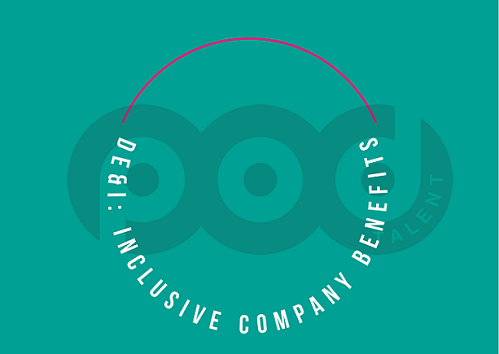It is becoming increasingly clear that, in the job market, money is definitely not all the matters. This can be seen across the workforce, but especially in the considerations of underrepresented candidates and employees, including (but not limited to) women, parents, care givers, members of the BAME community, and the LGBTQ+ community.
Equally important are young, or “Gen-Z”, applicants, many of whom are now reaching ages at which they are graduating from university and looking for their first permanent jobs, or already working. We are being asked more and more often about our clients’ Equality, Diversity, and Inclusion (ED&I) and Environmental, Social, and Governance (ESG) programmes. An employer’s ability to showcase what their business is doing in these areas does, and will continue to, sway the decisions of prospective employees across all these groups.
Building real and functional ED&I and ESG processes into business takes time, training, and resources, but one way in which you can stand out from your competitors almost immediately is by having (and advertising) inclusive benefits. You don’t need the flexibility of a start-up or the finances of a blue-chip businesses to work these into your packages, and it can make all the difference when it comes to talent acquisition and talent retention.
Some major options to consider include:
- Work anywhere policies – allow your employees to work a number of days per year, anywhere in the world. This especially benefits employees with family overseas.
- Flexible working schedules – does it absolutely have to be 9-5? Or can you allow your employees to work 8-4 or 10-6 if they prefer? Employees with young children or other responsibilities of care will benefit from this significantly.
- Floating leave days for cultural/religious holidays – it is taken for granted that we have Easter Monday and Christmas Day off work, but many employees may not or do not want to observe these traditional Christian holidays, and may prefer to work during this time in lieu of another day that is important to their own culture or religion.
- Professional learning and development – having a specific budget for L&D is a big selling point for candidates and current employees who would like to take courses relevant to their role that would otherwise cost them significant amounts of money (eg. MCIPS for Supply Chain).
- Enhanced parental leave – the government’s statutory allowance is considered poor by many who go on parental leave. Companies can give new parents more time and more pay whilst they take the time needed to care for young children.
- Health insurance – giving employees an option to enrol into private health insurance (including dental) will make them feel much better supported by their business. Many private healthcare providers also include mental health support in their packages, so it is worth checking what options are available with your current provider.
Other important inclusive benefits include:
- Private healthcare schemes that specifically support transgender staff
- Wellbeing and mental health benefits
- Annual leave allowance that goes beyond statutory entitlement
- Better paid medical/sick leave
- Menopause support
- Childcare support
- Creche facilities and nursing rooms
Some inclusive benefits will be easier to incorporate than others, but there should be no reason not for many businesses to seriously reconsider their approach to the above in the packages they offer, especially if they are looking to continue to attract diverse, young talent.
If you have any questions, or you would like to learn more about inclusive benefits or D&I in your recruitment strategy, please reach out to us at Pod Talent.

